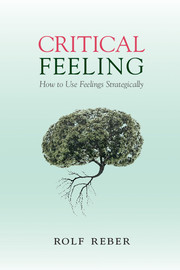Crossref Citations
This Book has been
cited by the following publications. This list is generated based on data provided by Crossref.
Reber, Rolf
2016.
Encyclopedia of Personality and Individual Differences.
p.
1.
Reber, Rolf
and
Greifeneder, Rainer
2017.
Processing Fluency in Education: How Metacognitive Feelings Shape Learning, Belief Formation, and Affect.
Educational Psychologist,
Vol. 52,
Issue. 2,
p.
84.
Høgheim, Sigve
and
Reber, Rolf
2017.
Eliciting Mathematics Interest: New Directions for Context Personalization and Example Choice.
The Journal of Experimental Education,
Vol. 85,
Issue. 4,
p.
597.
Reber, Rolf
2019.
Making school meaningful: linking psychology of education to meaning in life.
Educational Review,
Vol. 71,
Issue. 4,
p.
445.
Reber, Rolf
and
Bullot, Nicolas J.
2019.
Social Philosophy of Science for the Social Sciences.
p.
73.
Reber, Rolf
2020.
Encyclopedia of Personality and Individual Differences.
p.
4324.
Warburton, Edward C.
2020.
Emotional character: the prospects for a personality-based perspective on embodied learning in dance.
Theatre, Dance and Performance Training,
Vol. 11,
Issue. 1,
p.
76.
Skylark, William J.
2021.
More is easier? Testing the role of fluency in the more-credible effect.
Judgment and Decision Making,
Vol. 16,
Issue. 3,
p.
638.
Skaar, Øystein Olav
and
Reber, Rolf
2021.
Motivation through insight: the phenomenological correlates of insight and spatial ability tasks.
Journal of Cognitive Psychology,
Vol. 33,
Issue. 6-7,
p.
631.
Breithaupt, Fritz
Li, Binyan
and
Kruschke, John K.
2022.
Serial reproduction of narratives preserves emotional appraisals.
Cognition and Emotion,
Vol. 36,
Issue. 4,
p.
581.
Larson, Reed
and
Sri, Sumana
2024.
Flow as a catalyst for positive youth development.
Journal of Leisure Research,
p.
1.





